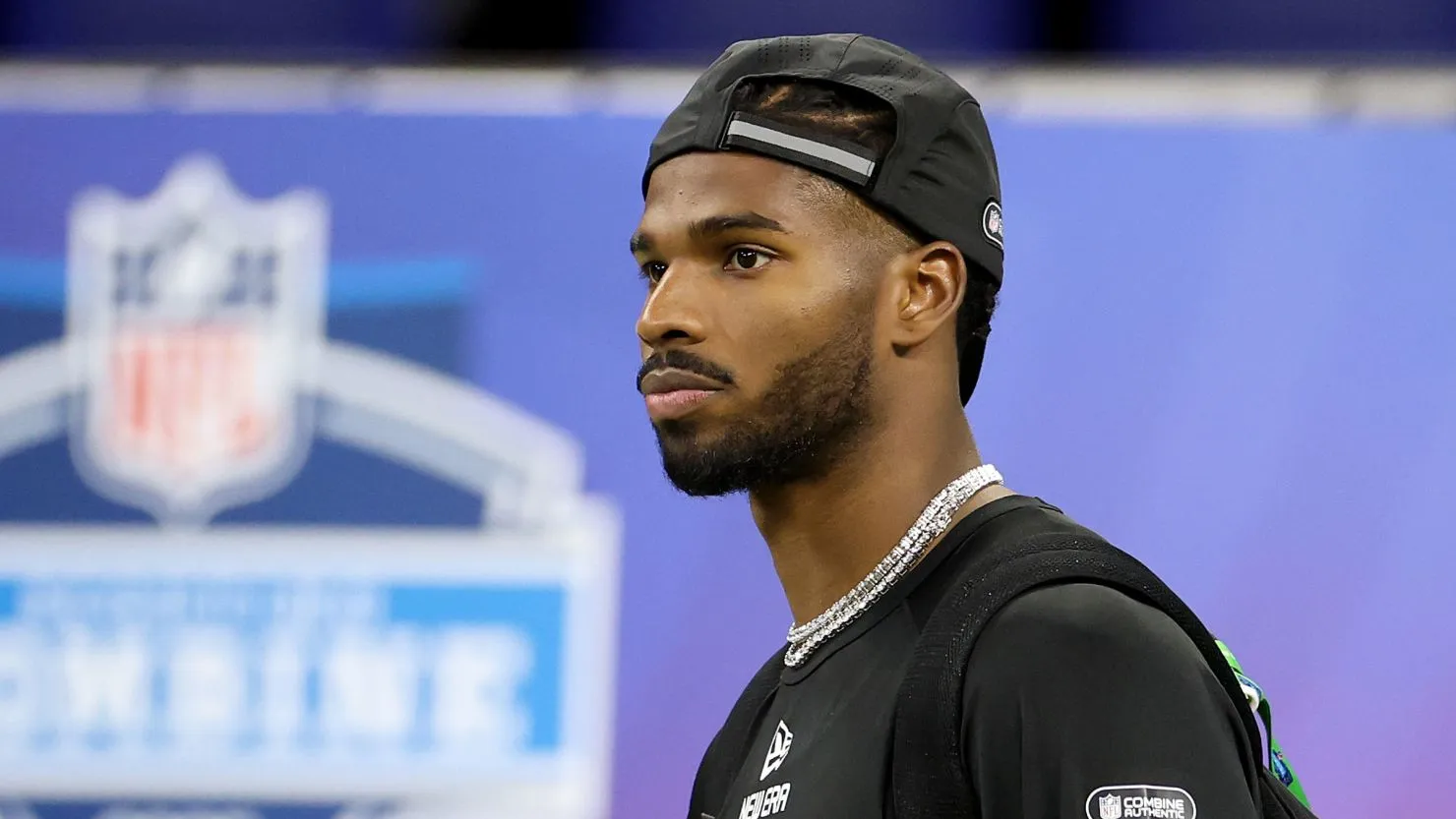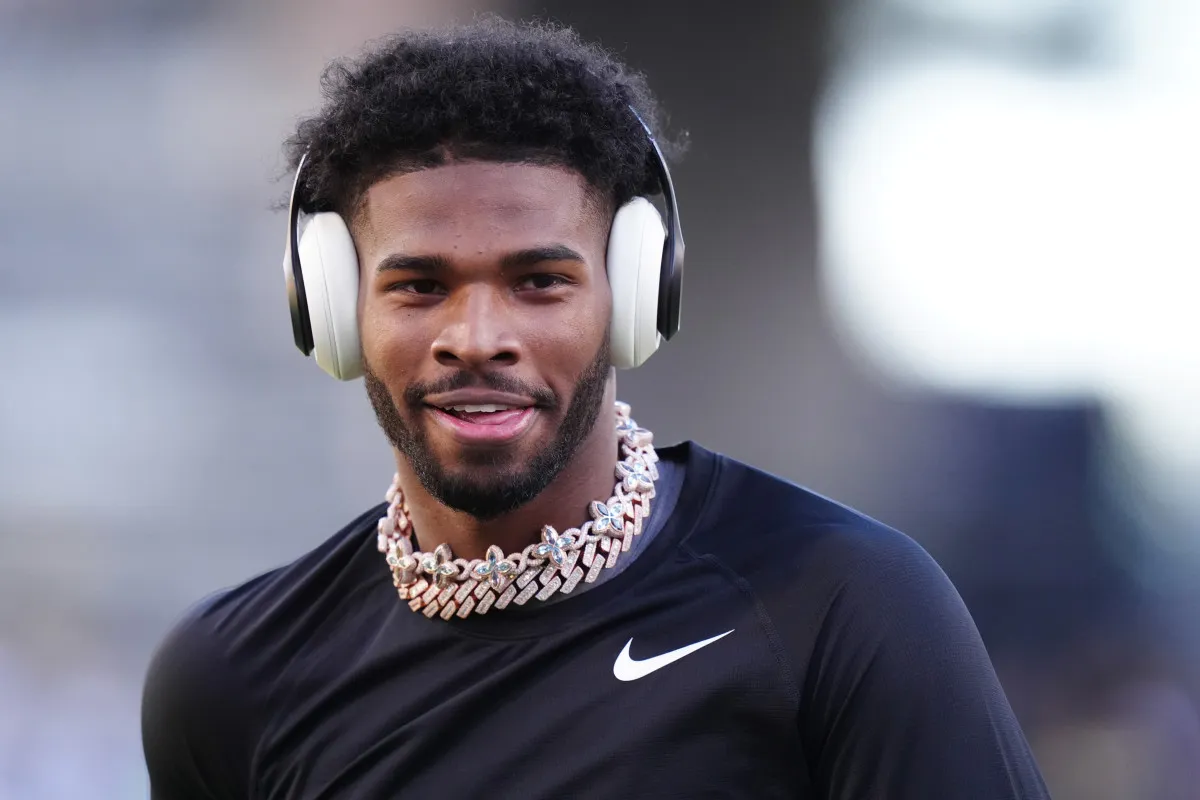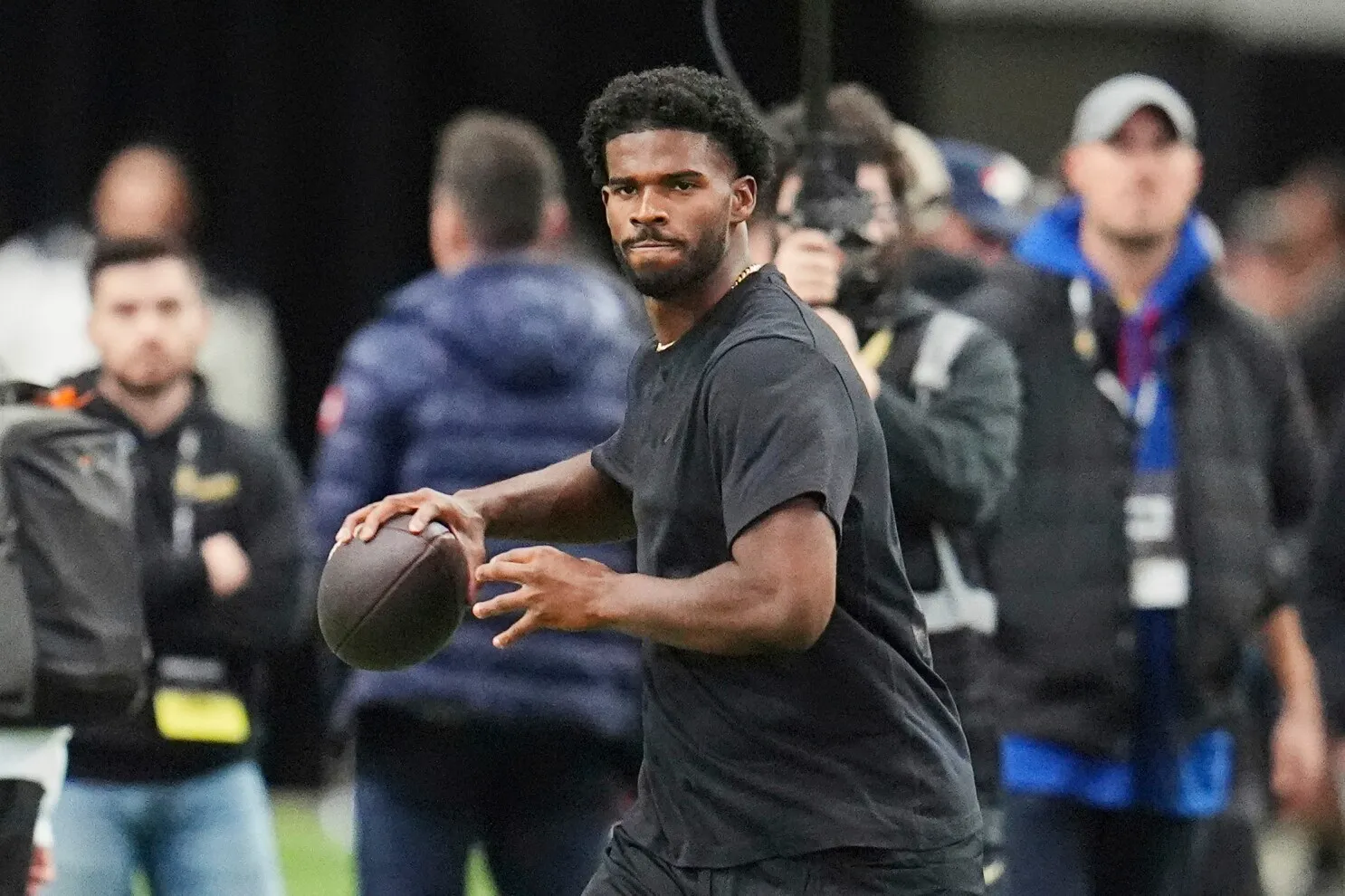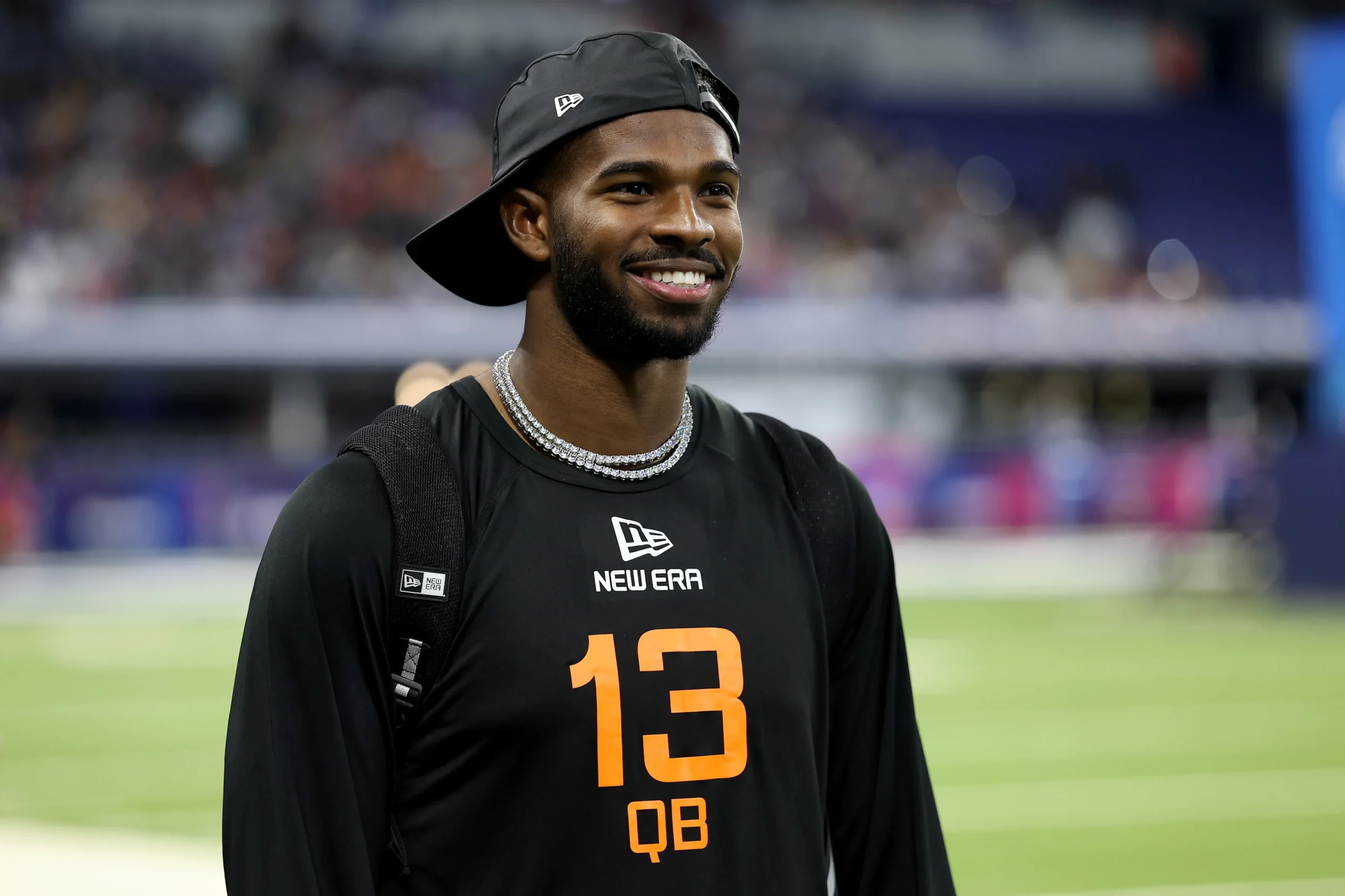In a saga that has raised eyebrows across the football world, the NFL’s handling of Shedeur Sanders’ confidential phone number has been thrown into the spotlight. The league fined the Atlanta Falcons $250,000 and defensive coordinator Jeff Ulbrich $100,000 for failing to prevent the disclosure of sensitive information related to the 2025 NFL Draft. However, as more details emerge, it appears that the blame may not lie with the Falcons after all.

The Chain of Events Leading to the Leak
It all started on Wednesday, April 23, when the NFL sent a confidential memo to all general managers, head coaches, player personnel directors, and club IT directors. The memo contained the phone numbers of 45 players, including Sanders, who was set to participate virtually in the draft.
Up until this point, it seemed like the Falcons were at fault for passing along Sanders’ phone number to Ulbrich. But the story takes a turn when we consider the series of communications that followed.
The NFL sent out a second email after the initial memo had already been circulated. This second email, marked only as a routine daily transaction report, contained Sanders’ new phone number—this time, with no confidentiality label attached.
It’s important to note that this email was sent to a much broader group of recipients than the original confidential memo. Among them was Jeff Ulbrich, who, as it turns out, received Sanders’ updated contact information directly from the league.
Ulbrich’s Involvement: Did He Really Break Any Rules?
The key moment in this controversy centers around Ulbrich’s son, who reached out to Sanders after receiving the phone number. According to the details uncovered by Pro Football Talk, Ulbrich’s son used the new phone number—sent to him directly by the NFL—to contact Sanders.

This development raises the question: If Ulbrich’s son reached Sanders using a number the NFL had sent out to a much wider group, can the Falcons really be blamed for sharing the information with the defensive coordinator? The answer, in this case, seems to be no.
The NFL’s Misstep: Why the Falcons Shouldn’t Be to Blame
The NFL’s actions have inadvertently shifted the blame onto the Falcons, who have found themselves in hot water for a situation that was largely out of their control. The league’s failure to restrict the distribution of Sanders’ phone number has now led to the Falcons taking the fall.
It’s clear from the facts that the Falcons did not initiate the leak. Instead, the NFL sent the confidential information directly to a much larger group of individuals, including Ulbrich. While the league’s actions may not have been malicious, they have certainly sparked an important conversation about confidentiality and data security in the world of professional sports.
A Case of NFL Overreach?
At the heart of this issue lies a significant error on the NFL’s part. The league’s decision to send Sanders’ personal contact information to a large group of recipients—without marking it as confidential—has led to a cascade of consequences.

As for the Falcons and Jeff Ulbrich, it appears they were merely caught in the crossfire of a much larger misstep. While the fines have been levied, the truth is that the league itself is the real culprit in this scenario. The situation also raises broader questions about how sensitive information is handled in the NFL, and whether the league’s security measures need to be reexamined.
The blame game surrounding Sanders’ phone number leak may have shifted in favor of the Falcons, but one thing is certain: the NFL must take responsibility for its own mishandling of confidential data.

I am a writer with a passion for technology and gaming. I write about a variety of subjects, including Esports, Games, Shows, and Sports. I create engaging and informative content for Hiptoro.

